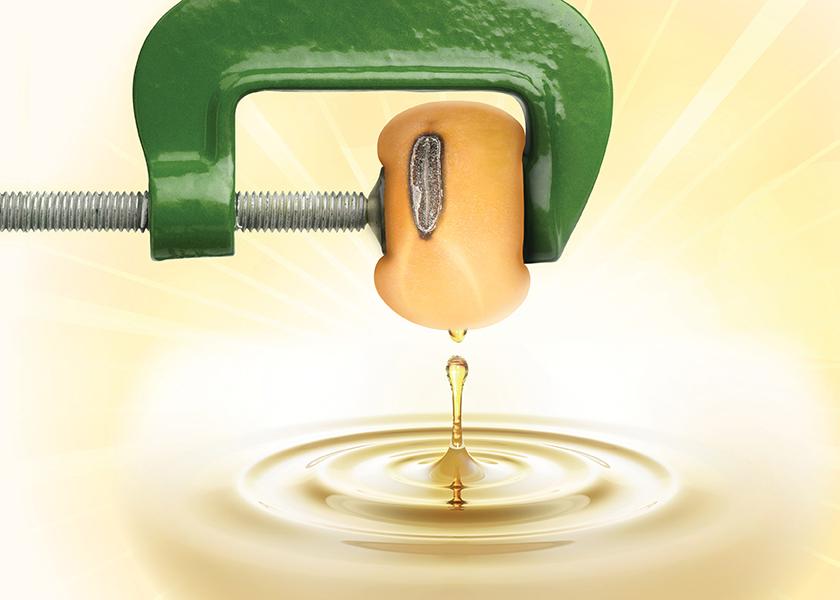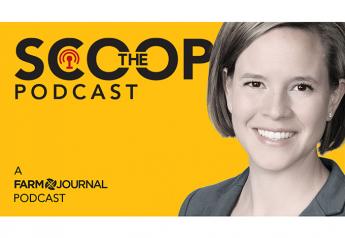Will Sustainable Fuel Power Your Farm Equipment In 10 Years?

As the Environmental Protection Agency continues to review renewable fuel blending requirements, the House Ag Committee and USDA are working to set the tone for policies in 2023.
Crafting a Farm Bill
USDA Secretary Tom Vilsack announced his department’s Climate-Smart Agriculture and Forestry Partnership Initiative to fund climate-smart practices by use $1 billion from the Commodity Credit Corporation (CCC).
The legislation defines a “climate-smart commodity” as an agricultural commodity that is produced using agricultural practices that reduce greenhouse gas emissions or sequester carbon. According to program details, the USDA’s goal with the initiative is to kickstart programs that will:
• Implement climate-smart production practices and systems on working lands
• Verify, monitor and quantify carbon and greenhouse gas benefits associated with each agricultural practice
• Develop markets and promote the identified climate-smart commodities
While we await further details from the USDA regarding the pilot programs, we do know the projects have to report and track GHG benefits “per farm, per project, per commodity produced, per dollar expended, and the anticipated longevity of GHG benefits.”
USDA says the projects are to be “focused on generating climate-smart commodities, and not on projects that focus on generating carbon offsets.”
Various lawmakers spoke out against UDSA dipping into CCC funds for the programs, including Sen. Roger Marshall (R-Kan.). He sent a letter to Vilsack, vocalizing disproval of the USDA’s attempt to “avoid” legal process.
“The CCC is authorized to use its general powers only after programs have been submitted to and approved by congress,” says Marshall. “It seems USDA is crafting its own farm bill by using the CCC to create its own programs and priorities that haven’t been established by Congress and to fund projects only USDA deems worthy.”
Marshall then posed various questions to Vilsack, including:
1. How the CCC followed Congressional notification and approval procedures?
2. Has the Department of Justice approved the CCC’s actions in avoiding Congressional notification and approval process?
Marshall also went on to cite the USDAs previously announced Fiscal Year 2021 programs—also said to be funded through the CCC—that will take another $3 billion from the kitty.
In a House Agriculture Subcommittee hearing on Tuesday, USDA Undersecretary for Farm Production and Conservation Robert Bonnie confirmed his agency is operating under their authority, assuring both parties the notice of funding availability was released by the USDA Natural Resources Conservation Service.
According to the CCC, their funds are made available to principal programs established by Congress to aid in domestic farm income, price support and conservation programs, as well as foreign market development, among other activities.
Renewable Fuels Reach New Heights
With sustainable aviation fuel on the rise, Wiesemeyer begs the question of whether there will be a push to power farm equipment with renewable fuels.
AgriTalk Host Chip Flory sees the possibility of tax incentives stretching into farm equipment through renewable diesel and biodiesel, as nine new crushing facilities will be completed by 2025, bringing in 400 million bushels of soybean crush capacity.
ProFarmer Policy Analyst Jim Wiesemeyer says private industry analysts previously dubbed renewable diesel an “overhyped” market topic. He predicts a surge in airline purchases of sustainable aviation fuel due to projected tax incentives.
Of oil refiners, Wiesemeyer says “you don’t spend some $300 million on these [soybean crushing] plants without a solid foundation of a market in the future.”
Flory says soybean oil is where most investors see the most profit. He says an unnamed traditional oil refiner chose to invest in a crush facility in exchange of 100% of the soybean oil produced from the operation.
“If you look at the rise of vegetable oil prices around the globe, you can see we need to double the amount of soybean oil we produce,” says Flory. “With climate initiatives, the soybean oil industry will be based on a different structure than ethanol was.”
Read more:
> McDonald’s Commits $5 Million to Accelerate Climate-Smart Farming Solutions







